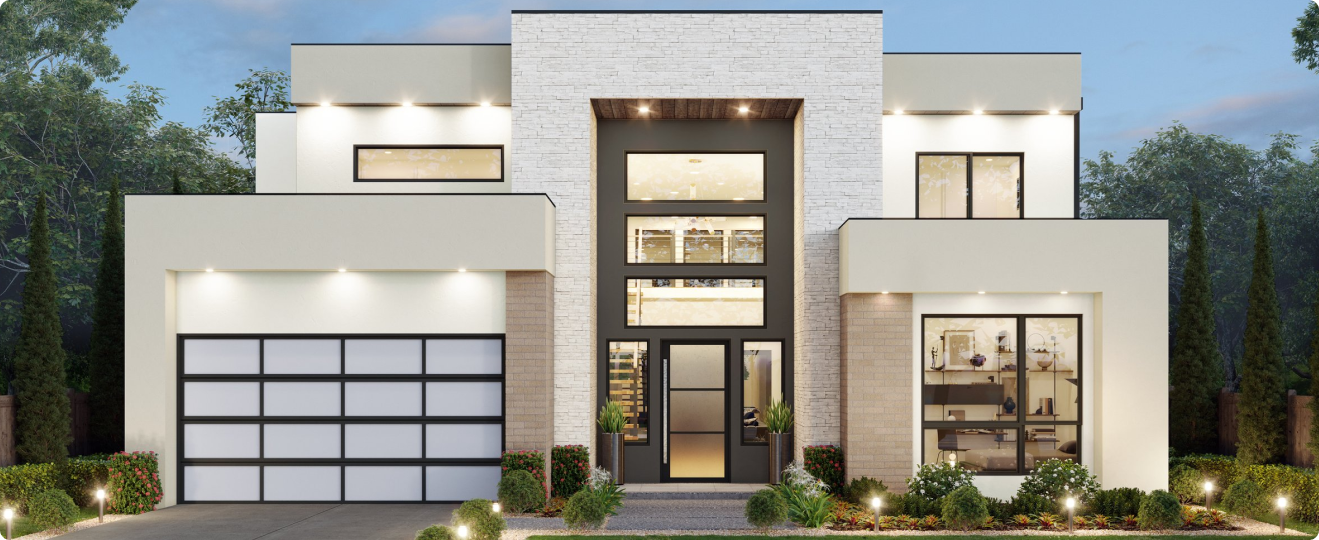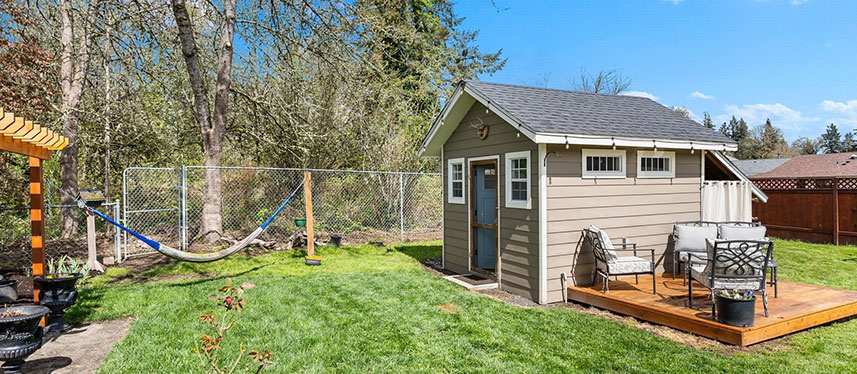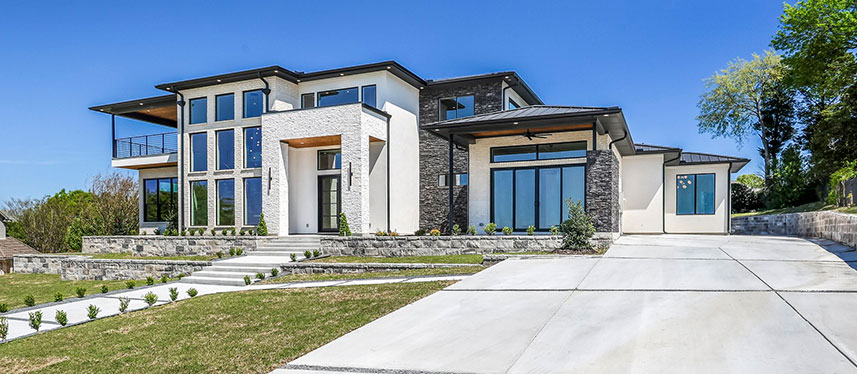
Introduction
Converting a garage in Campbell offers numerous benefits. By transforming this space, homeowners can create a comfortable living area, an office, or even a guest suite. A garage conversion not only utilizes underused space but also provides a versatile area that can enhance your living experience. With Campbell’s thriving community and pleasant climate, a garage conversion is a practical and attractive option for many residents.
Essential Garage Conversion Rules for Campbell
What you can build
Maximum size
The maximum size for a garage conversion in Campbell is typically around 1,000 square feet, depending on specific property regulations.
Side / rear setbacks
Side and rear setbacks usually require a minimum of 4 feet to maintain property boundaries and ensure safety.
Height limit
Garage conversions in Campbell have a height limit of around 16 feet, aligning with residential zoning laws.
Building separation
A minimum of 10 feet of separation from other buildings is generally required for a garage conversion in Campbell.
Permitting Process Timeline
Standard
The standard permitting process for a garage conversion in Campbell can take between 6 to 8 weeks.
Historic Property review
If the property is historic, the review process might extend to about 12 weeks due to additional checks and approvals.
Zoning Regulations in Campbell
Garage conversions must adhere to specific zoning regulations to ensure compliance and safety.
Garage Conversion Size Limitations
| Zoning District | Maximum Floor Area Allowed |
| R-1 (Single Family) | 800 sq ft |
| R-2 (Two Family) | 1,000 sq ft |
| R-3 (Multifamily) | 1,200 sq ft |
| R-4 (Neighborhood Mixed Use) | 1,000 sq ft |
Height Limitations
The height for a garage conversion must not exceed 16 feet to comply with residential zoning requirements.
Building Coverage
Garage conversions should not exceed 40% of the total lot area, ensuring adequate open space.
Location
| Property Type | Location Requirement |
| Single-Family Homes | Must be within the property boundaries |
| Duplex | Positioned at the rear or side |
| Multifamily | Can be integrated into the main structure |

Exterior details
The exterior design should match the main house to maintain aesthetic consistency within the neighborhood.
Setbacks and Buffer Zones
A minimum of 4 feet is required for side and rear setbacks to maintain proper spacing between properties.
Minimum Lot Area
Connection for utilities
Utilities must be connected to the main house’s systems, including water, electricity, and sewage.
Fire safety
Fire safety measures must include proper ventilation, smoke detectors, and, if necessary, fire-resistant materials.
Room specifications
- Living Area: The living area should be spacious enough to comfortably accommodate furniture and daily activities.
- Kitchen: The kitchen area must include essential appliances and proper ventilation.
- Bathroom: The bathroom should have adequate plumbing and meet all sanitary regulations.
- Ceiling Height: The ceiling height must be at least 7 feet to comply with building standards.
Short-term Rentals and Home Occupations Regulations
Garage conversions in Campbell can be used for short-term rentals or home occupations with the appropriate permits.
Building Codes
All garage conversions must meet local building codes to ensure safety and compliance.
Campbell Garage Conversion Permit Guidelines
| Permit Type | Description | Estimated Fee |
| Building Permit | Required for structural modifications | $500 |
| Electrical Permit | Needed for electrical work | $150 |
| Plumbing Permit | Required for plumbing installations | $200 |
| Mechanical Permit | Needed for HVAC systems | $100 |
| Planning Review | Ensures project meets local codes | $250 |
Property Requirements
Properties must meet specific criteria to qualify for garage conversions, such as lot size and zoning district.
Parking
Adequate parking must be maintained even after the garage conversion.
Front Setbacks
Front setbacks should be a minimum of 20 feet from the street.
Side and Rear Setbacks
Side and rear setbacks must be at least 4 feet to ensure proper spacing.
Open Space and Rear Yards
At least 30% of the lot should remain as open space or rear yard area.
Properties That Qualify
Most residential properties, including single-family and multifamily homes, qualify for garage conversions.

Development standards
Single-family Homes
Single-family homes must adhere to specific size and setback requirements for garage conversions.
Multi-family Properties
Multifamily properties can convert garages, ensuring the design is integrated with the main structure.
Duplex Properties
Duplex properties must follow zoning regulations and maintain the required setbacks and open space.
Property designations
- Flood Zones: Properties in flood zones must meet additional safety requirements.
- Easements: Easements must be respected, and no construction should interfere with them.
- Historic Properties: Historic properties require a thorough review to ensure the conversion preserves the historical value.
Summary
Garage conversions in Campbell provide a fantastic way to utilize space efficiently while adding value to your home. With proper planning and adherence to local regulations, these projects can transform unused areas into functional and attractive living spaces.
FAQs
Yes, you can convert your garage into a living space in Campbell by following the city’s guidelines and obtaining the necessary permits. The process involves submitting detailed plans, undergoing a review by local authorities, and ensuring that the conversion meets all building and safety codes. This transformation can provide additional living space for your family or create a separate rental unit.
Yes, a permit is required for a garage conversion in Campbell to ensure the project meets building and zoning regulations. The permitting process involves submitting architectural plans, paying necessary fees, and potentially undergoing inspections throughout the construction phase. Securing a permit helps ensure that the conversion adheres to local standards, ensuring safety and legality.
The maximum size for a garage conversion in Campbell is typically around 1,000 square feet, depending on specific zoning regulations. This size limit ensures that the converted space is proportionate to the main house and the lot size. Adhering to this limit helps maintain the neighborhood’s aesthetic and structural balance.
Yes, you can rent out your converted garage in Campbell, but you must comply with local rental regulations and obtain any necessary permits. The process includes ensuring that the space meets health and safety standards, registering the unit as a rental property, and possibly undergoing regular inspections. This can be a great way to generate additional income while providing affordable housing options.
Yes, there are setback requirements, including a minimum of 4 feet for side and rear setbacks in Campbell. These setbacks ensure that there is adequate space between your converted garage and neighboring properties, helping to maintain privacy and reduce potential conflicts. Following these guidelines is crucial for gaining approval for your conversion project.
Yes, the exterior of the garage conversion should match the main house to maintain neighborhood aesthetics in Campbell. This includes using similar materials, colors, and architectural styles to ensure that the converted space blends seamlessly with the existing structure. Maintaining a cohesive appearance helps preserve property values and community appeal.
Garage conversions in Campbell have a height limit of around 16 feet to comply with residential zoning laws. This restriction ensures that the converted garage does not overshadow neighboring properties and fits within the overall architectural style of the area. Adhering to this limit is essential for gaining the necessary approvals for your project.
Yes, utility connections for garage conversions must be integrated with the main house’s systems in Campbell. This includes connecting water, electricity, and sewage systems to the existing infrastructure to ensure proper functionality and compliance with local codes. Professional installation and inspection are required to meet these standards.
Yes, but converting a garage on a historic property in Campbell requires a thorough review process to preserve the property’s historical value. This involves obtaining approval from historical preservation authorities and ensuring that any modifications are in line with preservation guidelines. Maintaining the historical integrity of the property is essential during the conversion process.
Fire safety measures for garage conversions in Campbell include proper ventilation, smoke detectors, and, if necessary, fire-resistant materials. These requirements are designed to ensure the safety of occupants and minimize the risk of fire hazards. Adhering to these standards is crucial for the approval of your conversion project.
Yes, properties in flood zones must meet additional safety requirements for garage conversions in Campbell. These requirements often include elevating the structure, using flood-resistant materials, and ensuring proper drainage systems. Compliance with these guidelines is essential to protect the converted space from potential flood damage and to meet local regulations.
The minimum lot area for a garage conversion is generally 5,000 square feet in Campbell. This requirement ensures that there is sufficient space for the conversion while maintaining adequate open areas and setback distances. Meeting the minimum lot size is crucial for gaining approval for your garage conversion project.
Yes, duplex properties in Campbell can have garage conversions, following specific zoning regulations. These regulations ensure that the converted space is appropriately integrated into the existing structure and that all setback and open space requirements are met. Proper planning and adherence to these guidelines are essential for a successful conversion.
Yes, multifamily properties in Campbell qualify for garage conversions if they adhere to the required regulations. This includes meeting size, setback, and utility connection standards to ensure the converted space is safe and functional. Converting a garage in a multifamily property can provide additional living areas or rental units.
Adequate parking must be maintained even after the garage conversion in Campbell. This often means providing alternative parking solutions, such as driveway spaces or designated parking areas, to compensate for the loss of the garage. Ensuring sufficient parking is crucial for gaining approval for your conversion project.
Yes, at least 30% of the lot should remain as open space or rear yard area in Campbell. This requirement helps maintain the aesthetic and environmental quality of the neighborhood by ensuring that properties are not overly developed. Adhering to this standard is essential for the approval of your garage conversion.
Yes, with the appropriate permits, garage conversions can be used for short-term rentals in Campbell. This involves complying with local rental regulations, registering the property as a short-term rental, and ensuring that the space meets health and safety standards. Short-term rentals can provide a flexible income stream while offering accommodation options for visitors.
The process involves submitting plans, undergoing a review, and paying the required fees for a garage conversion permit in Campbell. Detailed architectural plans must be prepared and submitted to local authorities for review. The process also includes inspections at various stages of construction to ensure compliance with building codes and regulations.
Yes, easements must be respected, and no construction should interfere with them during a garage conversion in Campbell. Easements are designated areas on a property that allow access for utilities, drainage, or other services. Ensuring that your conversion project does not encroach on these areas is crucial for legal compliance and project approval.
Garage conversions in Campbell must meet local building codes to ensure safety and compliance. These codes cover various aspects of construction, including structural integrity, electrical systems, plumbing, and fire safety. Adhering to these codes is essential for the legal approval and safety of the converted space.